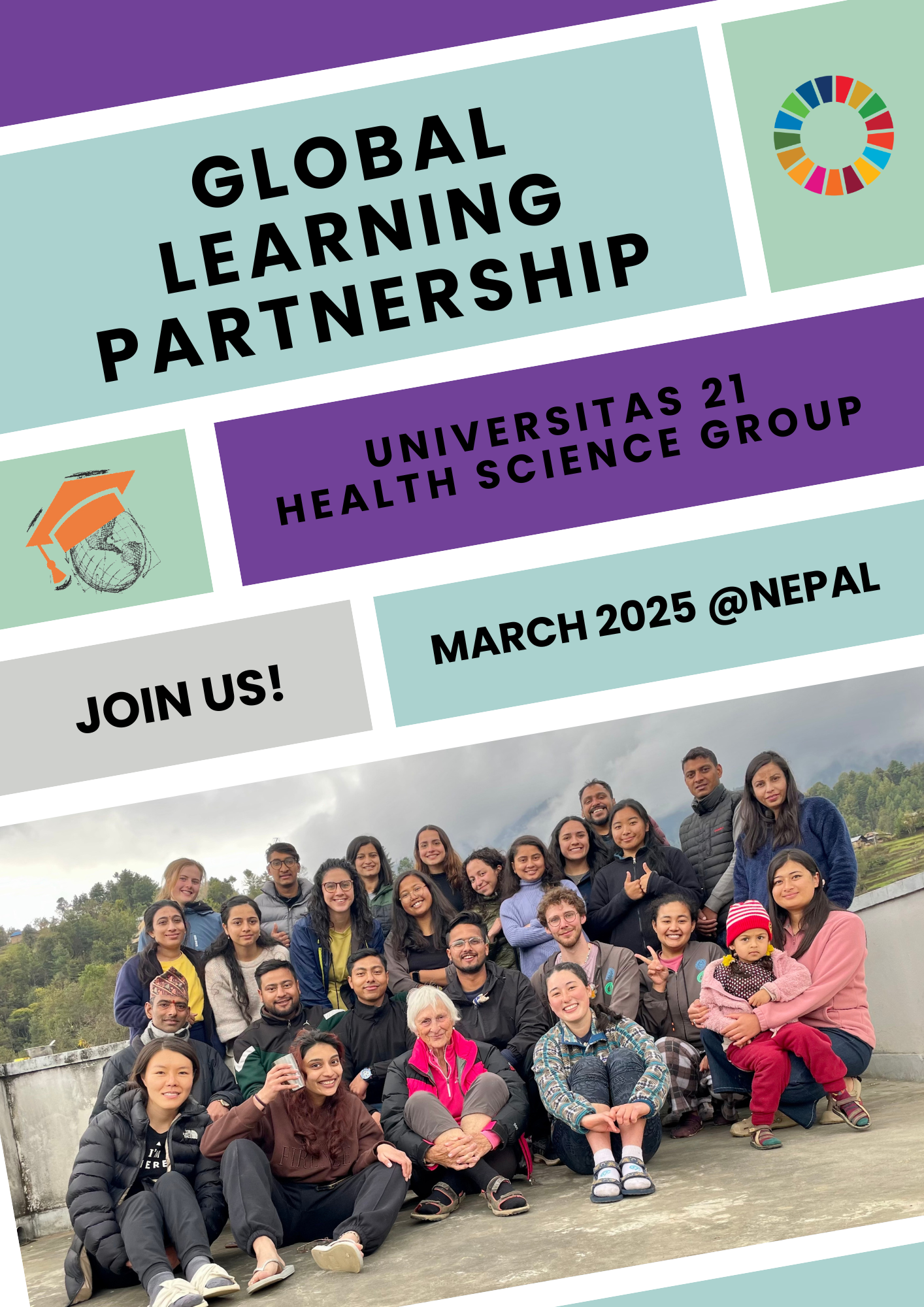“The Global Learning Partnership is one of the most inspirational experiences I have been involved in. The students were exceptional ambassadors for their universities. This demonstrated to me the strength of the U21 HSG as an inter-professional health science group engaging in discussions and debates regarding health related curricula and research with the aim of enhancing both local and global health outcomes.”
The 2025 Global Learning Partnership is back!
Scroll down for detail. Dates are 3 - 26 March 2025, in Nepal. The tuition cost is US$1,800. Three scholarships of US$1,000 are now available for students to apply to.
Background
The Global Learning Partnership (GLP) programme is a student placement experience that has been running since 2016. It is organised by the UN Sustainable Development Goal group, one of the project groups of U21 HSG.
The UN SDG group's vision is to facilitate the training of health sciences students to develop tools to be used by academics that aim to increase awareness of the SDGs.
After the successful pilot in 2016 we have partnering with the Kathmandu University School of Medical Sciences in Nepal to run the programme with a group of students from U21 HSG member universities.
The Model
The key purpose of the GLP is to encourage close collaboration and sharing of information between students and staff across all universities, and across all cultures. It also focuses closely on the inclusion of host-country students and academics and is designed to encourage and build global citizenship amongst all participants.
The programme provides students from a variety of health professions across U21 HSG member universities an opportunity to work with health science students from a university in a country where the SDG’s are relevant.
The benefits
The following principles underpin the design of the GLP:
Global health experiences result in attitudinal change and increased cultural understanding
Interprofessional education results in effective healthcare clinicians
International partnerships result in capacity building, mutually beneficial educational gain and resource sharing
Eligibility
Undergraduate and Masters students in training for a health profession can apply
Students must have completed at least one year of study in their program; however, the GLP will more likely suit those in final year of studies or have had some placement experience
Students must be still enrolled as a student
2025 Global Learning Partnership
Application Deadline: 15 November 2024 at 12pm Hong Kong time. Application for a scholarship is included in the same application form.
Publications
Health professional workforce education in the Asia Pacific
Lees, Jessica; Webb, Gillian; Coulston, Frances, Smart, Aidan; Remedios, Louisa. Journal of Public Health Research, 2016, Vol 5, No 1.
A review of the literature to inform the development of a new model of global placement: the Global Learning Partnership
Lees, Jessica; Webb, Gillian. Physical Therapy Reviews, 2017
In the news
Inaugural Universitas 21 Global Learning Partnership initiative in Nepal a success, University of Melbourne, 15 September 2016
Previous GLP programmes
Photo Highlights from 2024 Global Learning PArtnership








